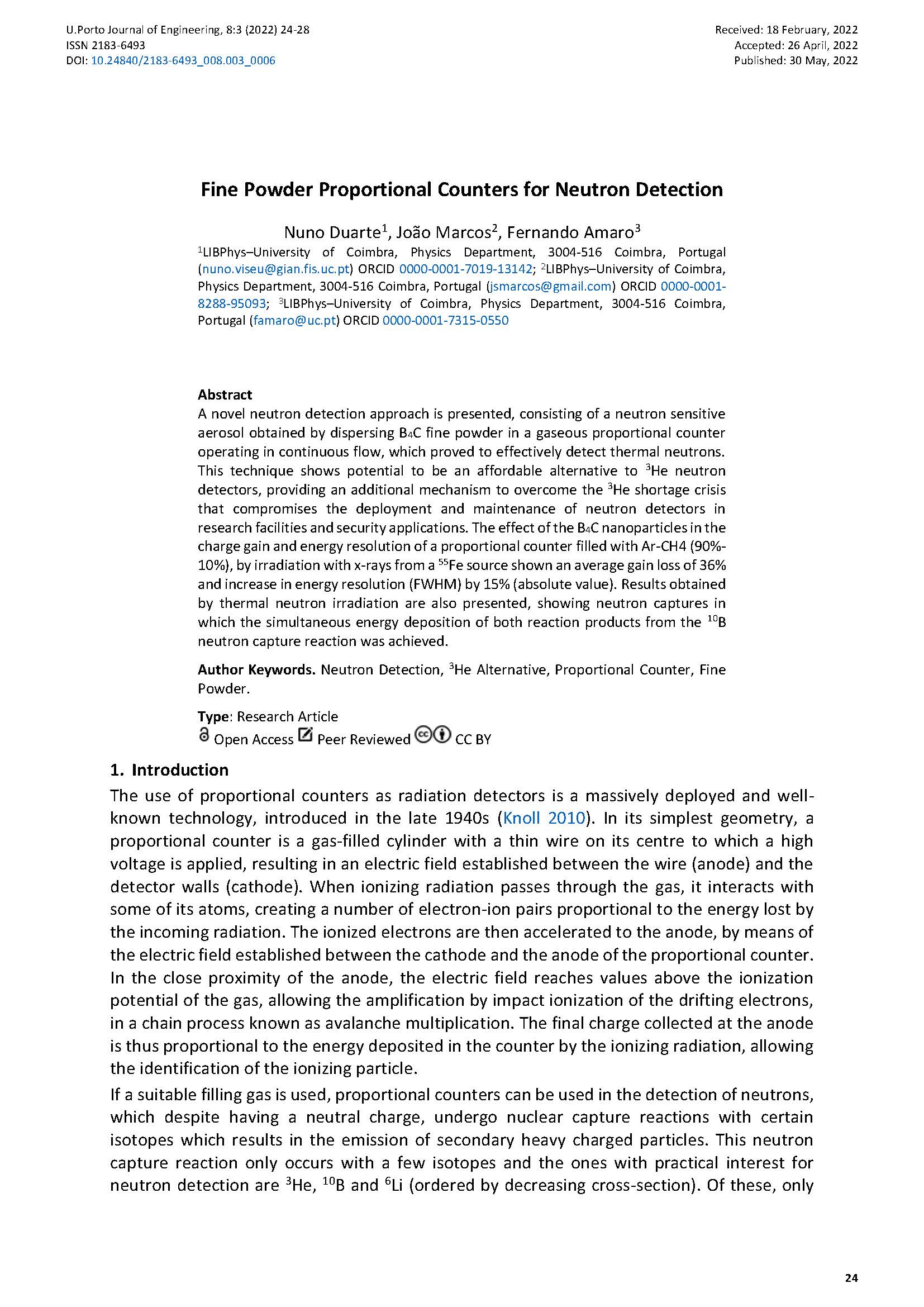Fine Powder Proportional Counters for Neutron Detection
Main Article Content
Abstract
A novel neutron detection approach is presented, consisting of a neutron sensitive aerosol obtained by dispersing B4C fine powder in a gaseous proportional counter operating in continuous flow, which proved to effectively detect thermal neutrons. This technique shows potential to be an affordable alternative to 3He neutron detectors, providing an additional mechanism to overcome the 3He shortage crisis that compromises the deployment and maintenance of neutron detectors in research facilities and security applications. The effect of the B4C nanoparticles in the charge gain and energy resolution of a proportional counter filled with Ar-CH4 (90%-10%), by irradiation with x-rays from a 55Fe source shown an average gain loss of 36% and increase in energy resolution (FWHM) by 15% (absolute value). Results obtained by thermal neutron irradiation are also presented, showing neutron captures in which the simultaneous energy deposition of both reaction products from the 10B neutron capture reaction was achieved.
Downloads
Article Details

This work is licensed under a Creative Commons Attribution 4.0 International License.
Authors who publish with this journal agree to the following terms:
- Authors retain copyright and grant the journal right of first publication with the work simultaneously licensed under a Creative Commons Attribution License that allows others to share the work with an acknowledgement of the work's authorship and initial publication in this journal.
- Authors grant the journal the rights to provide the article in all forms and media so the article can be used on the latest technology even after publication and ensure its long-term preservation.
- Authors are able to enter into separate, additional contractual arrangements for the non-exclusive distribution of the journal's published version of the work (e.g., post it to an institutional repository or publish it in a book), with an acknowledgement of its initial publication in this journal.
- Authors are permitted and encouraged to post their work online (e.g., in institutional repositories or on their website) prior to and during the submission process, as it can lead to productive exchanges, as well as earlier and greater citation of published work (See The Effect of Open Access).

